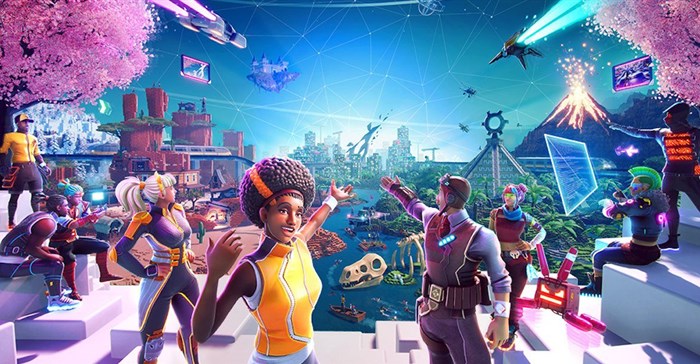
Source: © Techcabal
Techcabal South Africans are ready to hop on “the metaverse train?
The study, released today by Ornico and World Wide Worx, looked at the metaverse, the vast array of virtual worlds accessed through immersive experiences in games and through virtual reality headsets, as part of a vast data set compiled by Ask Afrika in its biannual Target Group Index (TGI) survey, which every year interviews around 30,000 South African adults, age 15 or more, living in cities and towns.
Already participating in virtual worlds
The study found that, in 2021, 48.8% of adult South Africans accessed a social network, meaning half of all South Africans are active on the likes of Facebook, Twitter, Instagram and TikTok.
But lurking beneath these numbers is the surprising emergence of a new kind of platform coming to the fore: the metaverse.
While most of its users don’t think of it as the “metaverse”, 16.1% of adult South African say they have participated in a “virtual world” in the last year.
“This number is surprising for another reason,” says World Wide Worx CEO Arthur Goldstuck. “It is very close to the proportion who say they used online dating sites: 16,4%. While this is seen as a mainstream use of the Internet, the metaverse is not, yet they are at a similar level of adoption.”
Goldstuck points out that some respondents would equate various in-game environments, such as Fortnite and Mimecast, with virtual worlds.
“In other words, these are not necessarily people actively entering a virtual world, but the experience of participating in an interactive, immersive environment, gives them a greater propensity to enter metaverse alternatives like Second Life, Decentraland and Ubuntuland.”
Ready for the metaverse train?
Oresti Patricios, CEO of Ornico, says that a key question is whether South Africans are ready to hop on “the metaverse train”.
“Are we technologically developed to build a viable commercial landscape in the metaverse, or should we take it one step back?” he asks. The answer, he says, is still not clear.
“In as much as consumers are catching on and have begun to explore this shared space with their virtual avatars, there is still no definitive understanding of what the metaverse is and what it should look like, today or in the future,” Patricios says.
“Because of their decentralised nature, these virtual worlds are more user-centric and will continue to grow and evolve based on user decisions and interactions. There will be a slow evolution,” he explains.
A rare opportunity for marketers
Nevertheless, Patricios says it represents a rare opportunity for marketers.
“Because these are uncharted waters, marketers have the opportunity to take a leading role in influencing, developing, and iterating this area for the betterment of the consumers they serve, rather than being bystanders,” he says.
“Many questions still need to be answered but one thing is certain: The power shift is inevitable and understanding this space relating to brands, content, social media, and creative assets is critical,” he adds.
The SA Social Media Landscape study was conducted after a full year of Covid-19 lockdowns. As such, it provides the most in-depth picture yet of the shifts in online behaviour brought about by the pandemic.
“As everywhere in the world, South Africans have needed to take a new approach to stay connected while staying apart,” says Goldstuck. “The result was a surge in both online access and social media use.”







































